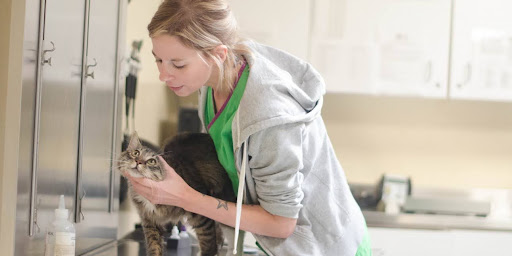Key Job Roles of a Certified Nursing Assistant (CNA)

Certified Nursing Assistants (CNAs) are the heart of healthcare support. While doctors and nurses create treatment plans, CNAs are the ones who spend the most time with patients—providing essential care, emotional comfort, and round-the-clock assistance. Whether in hospitals, nursing homes, rehabilitation centers, or private residences, CNAs play a critical role in maintaining the well-being of patients and supporting medical staff.
Their responsibilities go beyond just physical care. CNAs are often the first to notice subtle changes in a patient’s condition. They provide companionship, ensure hygiene standards are met, and help patients retain their dignity during difficult times. For anyone looking into the healthcare field, becoming a CNA is a noble, rewarding, and challenging career path. Below are ten important job roles that every Certified Nursing Assistant performs daily, proving just how vital they are in delivering quality healthcare.
1.Assisting with Daily Living Activities (ADLs)
CNAs help patients with basic daily needs such as bathing, grooming, dressing, toileting, and eating. These tasks may seem simple, but for individuals recovering from illness, surgery, or dealing with chronic conditions, they can be extremely challenging. A CNA ensures these activities are completed with care, respect, and dignity.
2.Monitoring Vital Signs
One of the core clinical responsibilities of a CNA is to monitor and record vital signs such as blood pressure, temperature, pulse, and respiratory rate. Regular monitoring helps detect early warning signs of a potential issue and ensures timely communication with nurses or doctors. This role is crucial in keeping patients safe and responding quickly to health changes.
3.Providing Mobility Support
Whether it’s helping patients move from bed to wheelchair, assisting with walking, or repositioning bedridden patients to prevent bedsores, mobility assistance is a central CNA duty. They ensure that patients remain as mobile as possible, which aids in recovery and prevents complications such as muscle stiffness or pressure ulcers.
4.Emotional Support and Companionship
CNAs often serve as a source of comfort for patients who may be feeling lonely, anxious, or depressed. A kind word, a warm smile, or simply spending a few extra minutes talking with a patient can make a huge difference. CNAs help improve a patient’s emotional well-being, which is just as important as physical care.
5.Maintaining Cleanliness and Hygiene
From changing bed linens to keeping patient rooms tidy, CNAs play an important role in infection control and general hygiene. A clean environment reduces the risk of hospital-acquired infections and improves the overall experience for patients and their families.
6.Assisting with Nutrition and Hydration
CNAs often help feed patients, ensure dietary restrictions are followed, and encourage adequate fluid intake. They also observe and report any changes in appetite, difficulty swallowing, or other nutrition-related concerns. Proper nutrition is key to patient recovery, and CNAs are on the front lines of making sure patients get the food and hydration they need.
7.Supporting Medical Procedures
While CNAs don’t perform medical procedures themselves, they often assist nurses and doctors during examinations and minor procedures. They may prepare equipment, position patients, or help calm them during a treatment. Their presence ensures smoother workflow and more efficient care delivery.
8.Documenting and Reporting Changes
Accurate documentation of patient activities, symptoms, and behavior is essential in healthcare. CNAs are required to observe and report any unusual signs or changes in a patient’s condition to licensed nurses. Their input is often the first indicator of a medical issue that needs attention.
9.Ensuring Patient Safety
Patient safety is a top priority, and CNAs play a key role by being alert and proactive. They prevent falls, ensure equipment is used properly, and follow all safety guidelines. Their constant presence at the bedside allows them to intervene quickly if something goes wrong, making them a crucial part of risk management in healthcare facilities.
10.Supporting End-of-Life Care
CNAs often care for terminally ill patients and their families, offering physical and emotional support during end-of-life care. Their compassion helps ease pain and suffering, and their presence offers comfort in a patient’s final days. They work closely with hospice teams and families to ensure dignity, peace, and comfort. In collaboration with hospice teams and nurses, CNAs help create a peaceful environment—whether at home or in a care facility. Their work ensures that the patient’s final days are filled with respect, compassion, and minimal discomfort. This deeply human aspect of the CNA role underscores how their presence brings not just care, but dignity and peace to one of life’s most delicate moments.
Certified Nursing Assistants in Dubai may not always be in the spotlight, but their contribution to patient care is invaluable. They are the steady hands and compassionate hearts that keep healthcare systems running smoothly. From monitoring vitals to offering emotional support, CNAs handle a diverse range of responsibilities that impact patients’ lives every day. Their work is demanding but deeply meaningful—making them essential members of any medical team. Whether you’re considering a CNA career or simply want to appreciate what they do, understanding these 10 job roles reveals just how vital CNAs are in modern healthcare.






